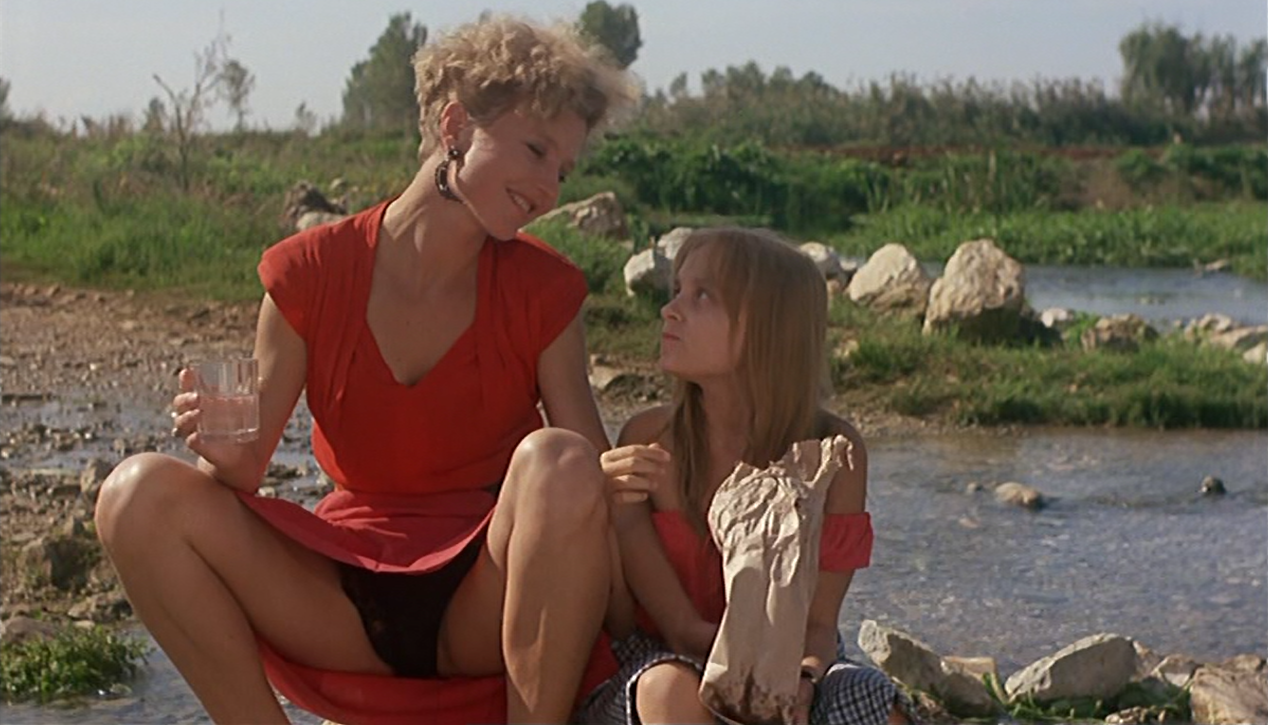CERCA
29 maggio 2017, 16.00 / Cinema De Seta
retrovie italiane
STORIA DI PIERA
Marco Ferreri
Italia 1983 / 107'

Il padre è impegnato in politica, la madre è una candida ninfomane che va dove la portano i sensi. La piccola Piera cresce sballottata tra gli spaesamenti del padre (innamoratissimo della moglie, ma angosciato dal suo comportamento) e le scorribande sessuali della madre. I genitori finiscono entrambi in manicomio, e la figlia, a sorpresa, diventa attrice. Dal romanzo omonimo di Piera degli Esposti e Dacia Maraini, un apologo surreale sulla femminilità descritta come natura assoluta, quasi mitica, estranea ai movimenti della Storia. Un film dalle grandi interpretazioni femminili dove le sfumature dei sentimenti delle protagoniste compongono un racconto di grande scandalo e libertà.
The father is involved in politics, the mother is a candid nymphomaniac that follows just her desires. Little girl Piera grows up tossed between her father’s disorientations (he is really in love with his wife, but distressed by her behaving) and her mother’s sexual forays. Both her parents end up in a madhouse, and the daughter, unexpectedly, becomes an actress. Based on the novel by Piera Degli Espositi and Dacia Maraini, a surreal apologia on femininity described as absolute nature, almost a mythical one, unrelated to history. A film with great female interpretations where the shadows of the feelings felt by the main characters compose a tale of great scandal and freedom.
Marco Ferreri
È stata una delle figure più contraddittorie del cinema italiano. Comincia a lavorare nel mondo del cinema con registi del calibro di Luchino Visconti e Alberto Lattuada e ancora molto giovane decide di lasciare l’Italia per viaggiare in giro per l’Europa incontrando e collaborando in Spagna con lo sceneggiatore Rafael Azcona con cui girerà la trilogia spagnola formata da El pisito (1958), Los chicos (1959) e El cochecito (1960). Dopo l’esperienza spagnola tornerà in Italia affermandosi nei successivi decenni come una delle più importanti figure registiche mondiali con film che hanno segnato un’epoca: La donna scimmia (1964), con il quale vince il nastro d'argento 1965 al miglior soggetto originale, Dillinger è morto (1969), La grande abbuffata (1973), Non toccare la donna bianca (1974), Chiedo asilo (1979) vincitore dell'Orso d'argento, gran premio della giuria al Festival di Berlino del 1980, con La casa del sorriso (1991) vince l’ Orso d'Oro al Festival di Berlino nello stesso anno. È morto a Parigi nel 1997.
He was one of the most contradictory figures of Italian cinema. He started working in the world of cinema with directors the likes of Luchino Visconti and Alberto Lattuada and, still very young, he decided to leave Italy in order to travel around Europe, meeting Rafael Azcona in Spain and collaborating there with him recording the Spanish trilogy made up of El pisito (1958), Los chicos (1959) and El cochecito (1960). After the Spanish experience he came back to Italy establishing himself in the following decades as one of the most important direction figures worldwide with films that marked an era: The Ape Woman (1964), who he won the Nastro d’Argento to the best original subject with in 1965, Dellinger is Dead (1969), La Grande Bouffe (1973), Don’t Touch the White Woman (1974), Seeking Asylum (1979) winner of the Silver Bear, Jury Grand Prix at the Berlin Festival in 1980, with The House of Smiles (1991) he won the Golden Bear of Berlin in the same year. He died in Paris in 1997.
STORIA DI PIERA
Marco Ferreri
Italia 1983 / 107'
screenplay Piera Degli Esposti, Marco Ferreri, Dacia Maraini
cinematography Ennio Guarnieri
editing Ruggero Mastroianni
sound Philippe Sarde
cast Isabelle Huppert, Hanna Schygulla, Marcello Mastroianni, Angelo Infanti, Tanya Lopert, Bettina Grühn, Laura Trotter, Aïché Nana
producer Achille Manzotti
contact http://www.fasofilm.it
contact info@fasofilm.it



